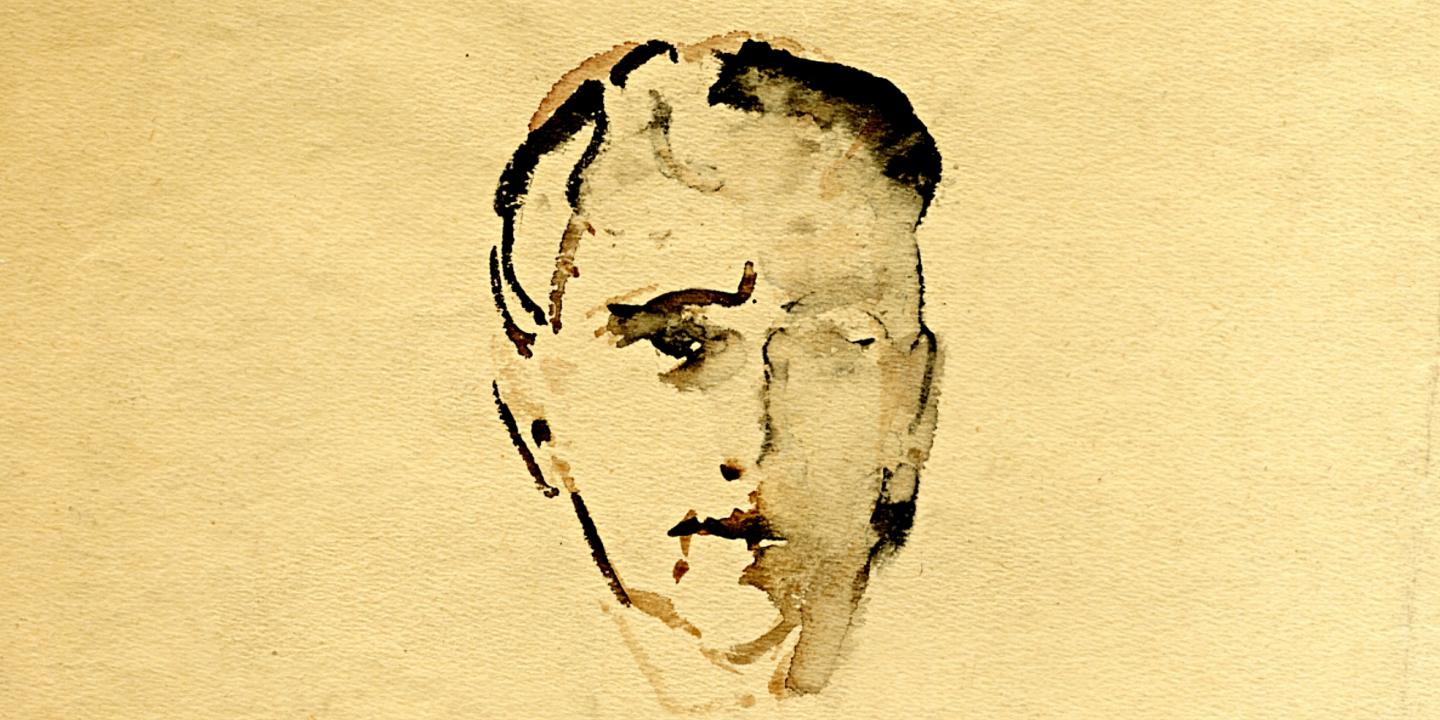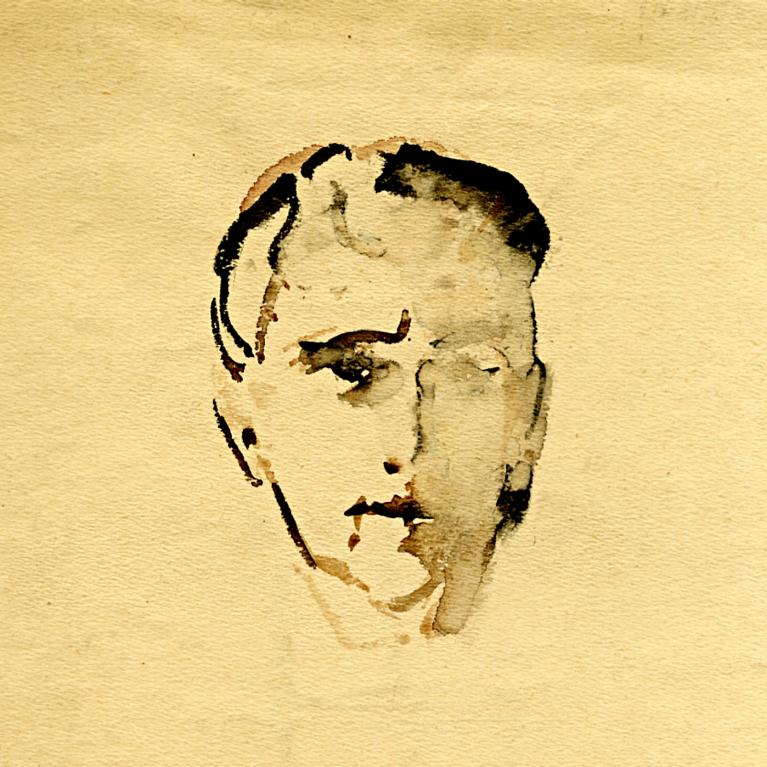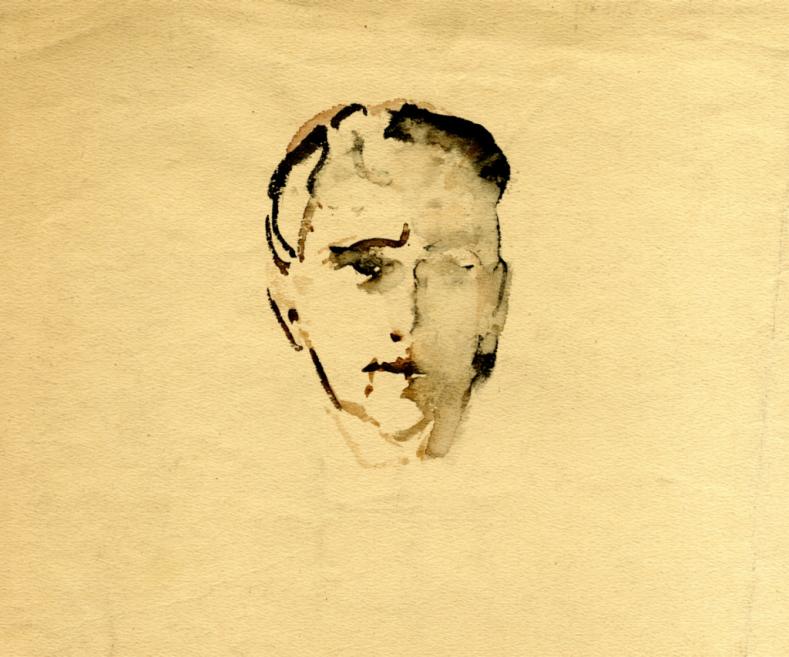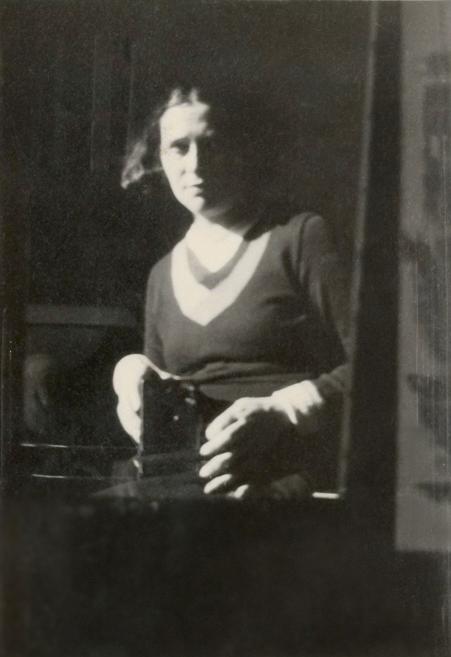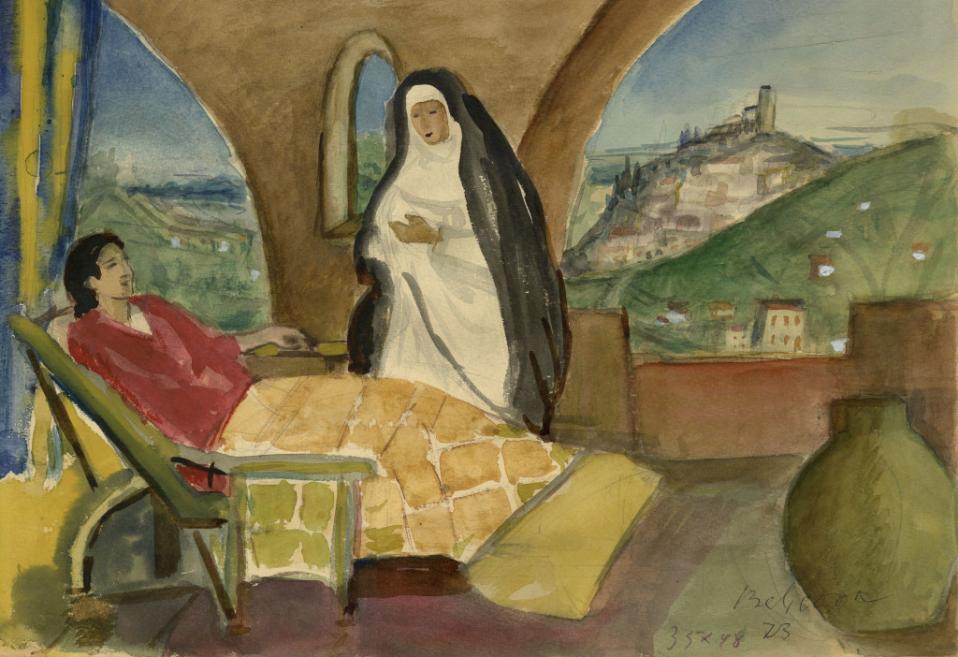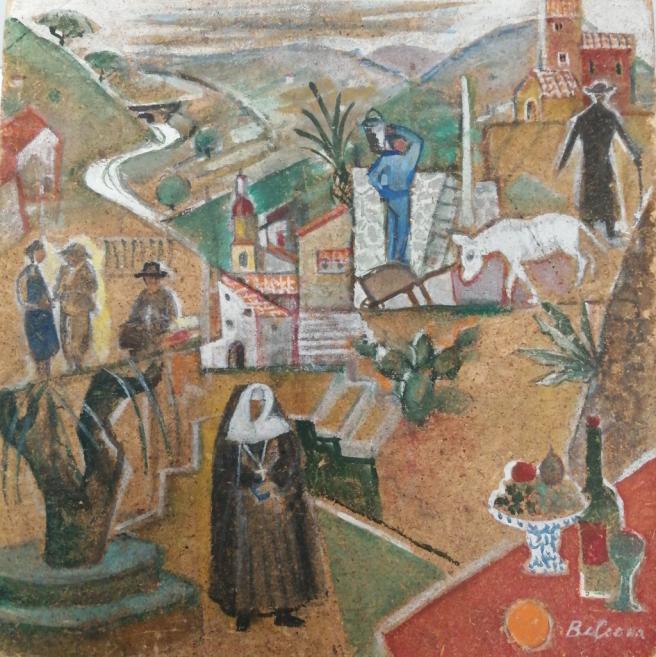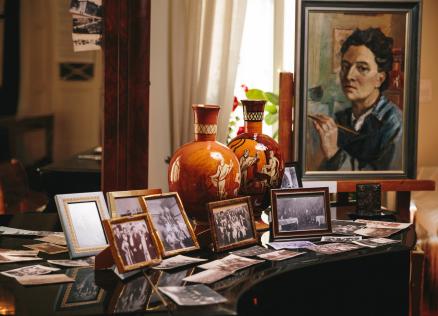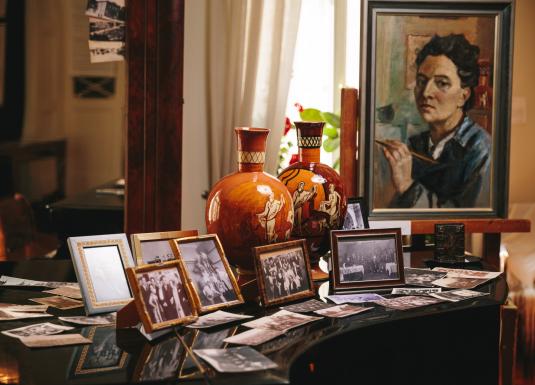Inner Dialogues. Aleksandra Beļcova’s Diaries and Correspondence
From 28 February 2023 to 2 March 2024, the Romans Suta and Aleksandra Beļcova Museum in Riga (Elizabetes iela 57a, Apt. 26) presents the exhibition Inner Dialogues. Aleksandra Beļcova’s Diaries and Correspondence.
The most recent exhibition of Aleksandra Beļcova’s (1892–1981) works took place in 2019 at the Latvian National Museum of Art offering the broadest retrospective of the painter’s oeuvre to date. Based on the feedback from many visitors, one of the most interesting parts of that exhibition were the extracts from Aleksandra Beļcova’s diaries and correspondence. The tragic political events of 2022 give a special resonance and currency both to what the artist wrote in her time and to facts of her life.
By birth, Aleksandra Beļcova was half-Ukrainian, half-Belarusian, while in forms she always listed her nationality as “Russian” – at the time, no one believed such details had any significance. She was born and spent her childhood and youth in the Chernigov Governorate, yet, following territorial reform after the establishment of the USSR and until today, these Ukrainian lands are within the borders of Russia as part of Bryansk Oblast.
Aleksandra Beļcova came to Latvia in search of personal happiness, answering to the call of her friend and future husband Romans Suta. The artist’s letters and diaries reveal her émigré experience, particulars of private life, a woman’s difficult fate in the complex, traumatic relationship with her spouse, with the turbulent, harsh transformations brought by the 20th century also finding their reflection. How much bitterness, disappointment can be sensed in an entry in Beļcova’s diary which was made a few weeks after the first Soviet occupation in 1940: “these are no longer the same Russians…”. She wrote this phrase presumably recalling her life in St. Petersburg and her native region at the beginning of the century.
In the 1970s, Latvian poet Māris Čaklais, fascinated with the personality of Aleksandra Beļcova, interviewed the artist about her life (the recording has not survived), which culminated in the idea of publishing a book with Aleksandra’s memoirs and Māris Čaklais’ poetry. It also resulted in a cycle of watercolours, in which the painter captured the most important events from her biography. Her childhood, the arrival of Latvian artists in Penza in 1915, the birth of a daughter in a convent in Paris, walks through the streets of the French capital with an infant on her lap, the journey in a peasants’ cart to Riga from the Kurzeme Pocket at the end of World War II, later – scenes from the bohemian life of the creative milieu of the Soviet period. The museum demonstrates images of these drawings to the public for the very first time.
The exhibition also presents Aleksandra Beļcova’s photographs, documents and lesser-known works from the collection of the Romans Suta and Aleksandra Beļcova Museum, Zuzeum Art Centre and private collections as well as footage from a 1972 newsreel showing the celebration of the artist’s 80th birthday from the Latvian State Archive of Audiovisual Documents.
Text by Natalya Yevseyeva
